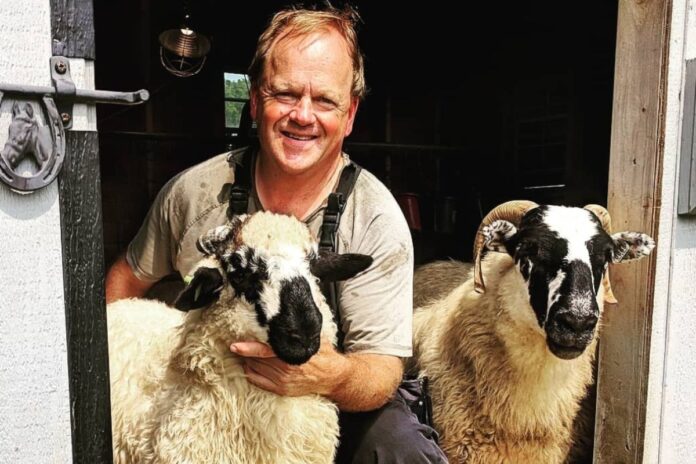That’s Farming editor, Catherina Cunnane, in conversation with Jon E Higgins, VMD, as part of this week’s veterinary segment, in the second of a two-part interview. Higgins, a farm vet of 34 years, based in New Jersey, provides an insight into his own journey to date, his own future career aspirations, and advice for new grad vets in this post, which follows part one of his interview with the publication.
“Veterinary medicine has completely met my expectations. It has always been about being around cows and farmers – they are both wonderful to work with daily.
It is an industry full of surprises, and there is a breadth of people and characters.
I work with heirs to large companies on exquisite estates, to usual commercial farmers, and backyard smallholders.
Even for years, I worked with our state corrections department and inmates working on the state dairy farms. It was and is just such a range of types I really enjoy it.
I like being outdoors all the time and also problem-solving – helping farmers make their herd/flock productive, healthy, and happy.
I think there is recognition that you may be able to fix something, and economically, it does not fit for the cow or farm, so not being able to enact changes you know will help can be frustrating.
Women in veterinary
I was fortunate, even in the 1980s, to be in a class of 75% women at Penn. What is more, I saw classmates that had to deal with some chauvinism on some farms, which is lessened today – somewhat, not completely – thankfully.
All my associates were women, and veterinary medicine is so much improved with the shift over the last 50 years to less – especially in farm med – of an all-farm boys’ club.
Future
In terms of my own pathway, I am entering the ‘third trimester’ of my career and am focusing a bit more back on how I started with advanced repro techniques.
I am looking to include work with ovum pickup and IVF with cows as well as small ruminant lapAI and ET.
Travel is very important, and some more of that would be good, although I do not mind including some vet med on those trips.
I have a potential trip to South America in the fall to transfer beef embryos. And I have ‘met’ so many interesting vets from around the world on Instagram (@thecowdoc) and have met a few people and have lots more to see.
It is always a wonderful experience, and just having this daily cadre of fellow farm vets in all time zones around the world is exciting and new.
I am considering working on advanced practitioner status studies in sheep health. Although I work a lot with cattle (60-70%), sheep are terrific and really the first farm animals I was around as a kid.
My ultimate goal is to assist farmers by increasing the productivity, health, and ‘happiness’ of their herds and flocks.
Reflection
I am fortunate to have spent a third of a century getting to work with farmers and cows – ruminants to be true, with some horses, pigs, and camelids – even chickens and honeybees around the edges, so it is a wonderful variety that continues to be a pleasure to wake up to each day.
I had offers from not only our local vet clinic but others and other ET companies to work for them – but I was bent on setting up my own practice – perhaps from the years of farming developed an independent streak that persist.
And, of course, every January when it is -15-20C degrees, I think about getting my MRCVS finally and immediately moving and doing dairy locums in warm New Zealand.
But then spring days arrive here in New Jersey, which really is quite scenic and picturesque and has so much ag variety – not quite the stereotype that outsiders (in the US) think.
Advice for aspiring and new grad vets
I work with extern students in their fourth year of vet school, clinical year, and I am so impressed.
Our profession is in good hands, and although ag is consolidating, I think we, as vets, will continue to evolve and offer so much to producers.
A capable vet possesses a willingness to learn new things, and you should never be afraid to say I do not know, but I will find out.
Vet med is a people business – some of the best applicants to vet school or as an associate have experience dealing with the public – say someone that was in retail or waited tables – that is awesome and so helpful in dealing with the owners of these animals.
It is important to have good mentorship from within practice, but there are also some really good Facebook groups specific to bovine or small ruminant vet work where you can really find some good support.
I told my associates, all new grads, that ‘you may get thrown in on the deep end, but you will always have a lifeline to reach for if you need it’.
Find a practice with great mentorship and a place that you have ‘fun’ at, along with hard work.
Always keeping curious and learning is how you can succeed in the veterinary medicine field.”
To share your story, email – [email protected]





